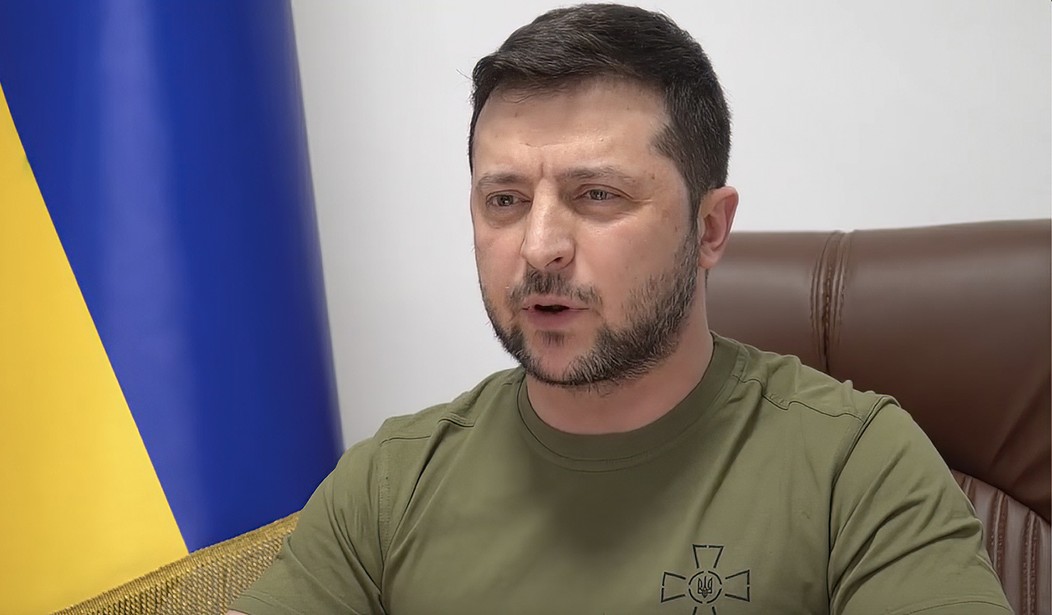Right now, the fight for control of Ukraine is taking place in the skies above Kyiv and in the streets of Mariupol. However while the conflict between Russian and Ukrainian forces in the sky and on the land has ground to a stalemate, Vladimir Putin and his virtual war machine dedicated to sowing disinformation are decidedly losing the information war.
The Russian invasion of Ukraine marks the first major conflict in Europe to take place in the age of social media, an online space that Vladimir Putin has spent decades working to dominate. Over the years, Putin has carefully constructed an enormous virtual apparatus designed to confuse, disorient, and dishearten his opponents, and he’s effectively used deception and disinformation to weaken democracy abroad, all while cementing his own power in Moscow.
While Putin has earned a reputation as a master manipulator of the online world, his disinformation efforts in Ukraine have fallen flat, and Ukrainian President Volodymyr Zelensky has flipped the script to use social media to protect democracy against advancing authoritarianism.
Zelensky, a performer-turned-politician, has used the virality of platforms like Twitter and his mass following on sites such as Instagram to flash a bright spotlight on the war in Ukraine and rally global support to his side. Before the conflict even started, official Ukrainian government Twitter accounts made news for posting memes to draw attention to brewing Russian aggression. Since Putin’s armies have poured into Ukraine, President Zelensky’s steady stream of inspiring pictures, moments, and videos, including his now-famous request for ammunition instead of evacuation, have continued to keep attention on the war.
Recommended
But for Zelensky and the Ukrainian people, social media has proven to be much more than an online arena to earn symbolic support. While politicians around the world have quibbled over aid, campaigns on sites like GoFundMe have quickly accumulated tens of millions of dollars in support for Ukraine, and official nonprofit and Ukrainian government accounts have tweeted about their efforts to raise money through cryptocurrency donations.
This isn’t the success most experts expected Ukraine to achieve against an internet-savvy autocrat like Vladimir Putin, who’s made Russia famous for its cyber capabilities. While Putin has attempted to spread disinformation online, Ukrainian leaders have used their newfound megaphones to dispel Russian propaganda, and social media companies have taken diligent steps to blunt the effects of Putin’s online tactics.
YouTube, for instance, announced that it would take action to fully block access to Russian state-funded media, and the video platform made the decision to remove content that 'denies, minimizes, or trivializes' Russia's invasion of Ukraine.
Twitter has also taken steps to curb the spread of pro-Putin disinformation online. The social media platform announced the creation of a curated page to share truthful, validated information about the conflict, and it’s tagged and limited the visibility of Russian state-run media sources.
Right now, the Ukrainian people are demonstrating that social media isn’t just a weapon for dangerous dictators to wield. Tech companies have answered the call to take a stand against authoritarianism and disinformation. Social media has given President Zelensky a tool to rally support against an aggressor like Putin. When Russia first launched its invasion into Ukraine, it was a story of David and Goliath – now in the online age, social media’s tipping the scales.
Ken Blackwell was the former United States Ambassador to the United Nations. He is a senior advisor to the Family Research Council in Washington, DC.
























Join the conversation as a VIP Member